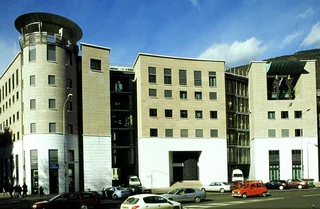
Wallneregg
Soprabolzano/Oberbozen, Ritten/Renon, Bolzano/Bozen and environs
| Bolzano a jeho okolí vám nabízejí bohatou historii a kulturní zážitky. Přijďte a objevte všechno, co tento region nabízí. |

Soprabolzano/Oberbozen, Ritten/Renon, Bolzano/Bozen and environs

La Costa/Seit, Laives/Leifers, Bolzano/Bozen and environs

1/8
Bolzano Centro/Bozen Zentrum, Bolzano/Bozen, Bolzano/Bozen and environs

Piani di Bolzano/Bozner Boden, Bolzano/Bozen, Bolzano/Bozen and environs

Nobls/Nobls, Jenesien/San Genesio Atesino, Bolzano/Bozen and environs

1/3
Oltrisarco/Oberau, Bolzano/Bozen, Bolzano/Bozen and environs

1/2
Meltina/Mölten, Mölten/Meltina, Bolzano/Bozen and environs

1/6
Don Bosco/Don Bosco, Bolzano/Bozen, Bolzano/Bozen and environs

1/3
Pietrarossa/Rotwand, Ritten/Renon, Bolzano/Bozen and environs

Bolzano Centro/Bozen Zentrum, Bolzano/Bozen, Bolzano/Bozen and environs

1/4
Bolzano Centro/Bozen Zentrum, Bolzano/Bozen, Bolzano/Bozen and environs

1/2
Frassineto/Verschneid, Mölten/Meltina, Bolzano/Bozen and environs

Bolzano Centro/Bozen Zentrum, Bolzano/Bozen, Bolzano/Bozen and environs

Oltrisarco/Oberau, Bolzano/Bozen, Bolzano/Bozen and environs

Gries/Gries, Bolzano/Bozen, Bolzano/Bozen and environs

1/2
Bolzano Centro/Bozen Zentrum, Bolzano/Bozen, Bolzano/Bozen and environs

Piani di Bolzano/Bozner Boden, Bolzano/Bozen, Bolzano/Bozen and environs

1/3
Meltina/Mölten, Mölten/Meltina, Bolzano/Bozen and environs

1/7
Don Bosco/Don Bosco, Bolzano/Bozen, Bolzano/Bozen and environs

1/5
Bolzano Centro/Bozen Zentrum, Bolzano/Bozen, Bolzano/Bozen and environs

1/2
Meltina/Mölten, Mölten/Meltina, Bolzano/Bozen and environs

1/3
Gries/Gries, Bolzano/Bozen, Bolzano/Bozen and environs

Bolzano Centro/Bozen Zentrum, Bolzano/Bozen, Bolzano/Bozen and environs

1/4
S. Maddalena/St. Magdalena - Bolzano/Bozen, Bolzano/Bozen, Bolzano/Bozen and environs

Bolzano Centro/Bozen Zentrum, Bolzano/Bozen, Bolzano/Bozen and environs

1/3
Seit/La Costa, Laives/Leifers, Bolzano/Bozen and environs

Bolzano Centro/Bozen Zentrum, Bolzano/Bozen, Bolzano/Bozen and environs

Bolzano Centro/Bozen Zentrum, Bolzano/Bozen, Bolzano/Bozen and environs

Valdurna/Durnholz, Sarntal/Sarentino, Bolzano/Bozen and environs

Mölten/Meltina, Bolzano/Bozen and environs